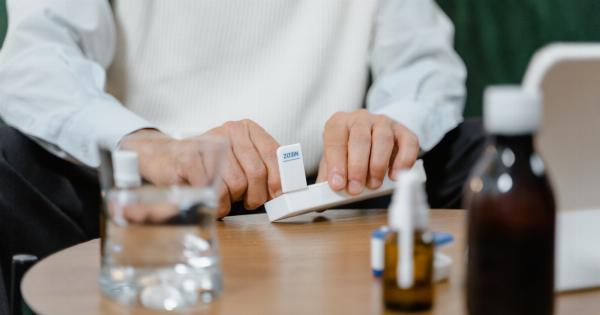Hemorrhoids are a common problem that many pregnant women experience. They are swollen blood vessels in the rectal area that can cause discomfort and pain. Here are some of the symptoms of hemorrhoids during pregnancy:.
1. Itching and Irritation
One of the first signs of hemorrhoids is itching and irritation around the anus. This can be quite bothersome and may worsen as the hemorrhoids enlarge.
2. Bleeding
Blood in the stool or on toilet paper after wiping is another common symptom of hemorrhoids. The blood is typically bright red and may be seen on the surface of the stool or on the toilet paper.
3. Discomfort or Pain
Hemorrhoids can cause discomfort or pain, especially when sitting or during bowel movements. The swelling and inflammation of the blood vessels can lead to a feeling of pressure or fullness in the rectal area.
4. Swelling
The blood vessels in the rectal area may become swollen and enlarged, resulting in visible swelling. This can make sitting or walking uncomfortable for pregnant women.
5. Protrusion
In some cases, hemorrhoids may protrude from the anus. This can be accompanied by a feeling of heaviness or a lump near the opening of the anus.
Remedies for Hemorrhoids During Pregnancy
While hemorrhoids during pregnancy can be uncomfortable, there are several remedies that can help alleviate the symptoms. Here are some options to consider:.
1. Dietary Changes
Increasing your fiber intake can help soften the stool and make it easier to pass. This can reduce the strain during bowel movements and help prevent hemorrhoids from worsening. Good sources of fiber include fruits, vegetables, whole grains, and legumes.
2. Hydration
Staying well-hydrated can help prevent constipation, which is a common cause of hemorrhoids. Drink plenty of water throughout the day and avoid excessive intake of caffeine or sugary drinks.
3. Sitz Baths
A sitz bath involves soaking the anal area in warm water for about 10 to 15 minutes. This can help reduce swelling and provide relief from itching or discomfort. You can try taking a sitz bath a few times a day for maximum benefit.
4. Topical Treatments
Applying over-the-counter creams or ointments specifically designed for hemorrhoids can help reduce inflammation and provide temporary relief from symptoms.
However, it’s important to consult with your healthcare provider before using any medication during pregnancy.
5. Proper Hygiene
Keeping the anal area clean and dry is essential for managing hemorrhoids. After bowel movements, gently pat the area with a soft cloth or use unscented baby wipes. Avoid using harsh soaps or wipes that contain alcohol or fragrances.
6. Regular Exercise
Engaging in regular physical activity can help stimulate bowel movements and prevent constipation. Consult with your healthcare provider about safe exercises during pregnancy, such as walking, swimming, or prenatal yoga.
7. Avoid Straining
Straining during bowel movements can worsen the symptoms of hemorrhoids. If you have the urge to have a bowel movement, try to go as soon as possible to avoid excessive straining.
If you’re having difficulty passing stool, consult with your healthcare provider for guidance.
8. Hemorrhoid Cushions
Using a hemorrhoid cushion or pillow can help relieve pressure on the rectal area while sitting. This can provide added comfort and reduce discomfort associated with hemorrhoids.
9. Use Cold Compresses
Applying a cold compress to the anal area can help reduce swelling and provide temporary relief. Wrap a few ice cubes in a clean cloth and gently place it on the affected area for a few minutes at a time.
10. Consult with a Healthcare Provider
If home remedies do not provide sufficient relief or if the symptoms worsen, it’s important to consult with your healthcare provider.
They can evaluate your condition and recommend appropriate treatment options, including prescription medications or procedures if necessary.





























